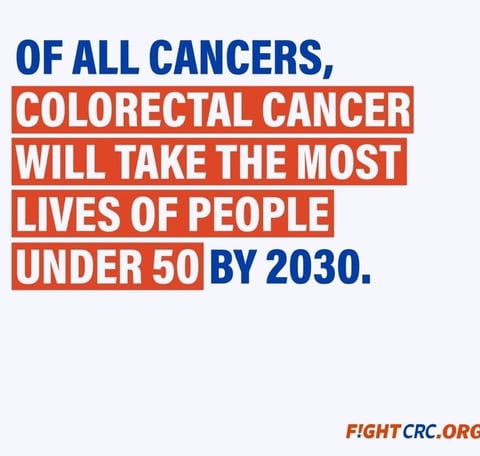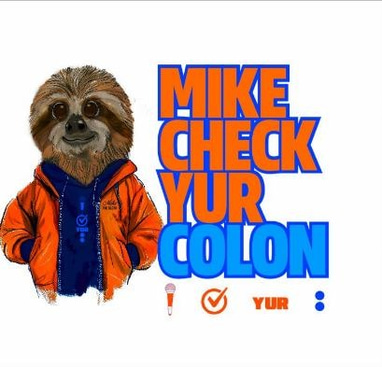What is Colorectal Cancer?
Colorectal Cancer starts in your colon and rectum is now the number 1 cause of cancer death for men under 50 and the number 2 cause of cancer death in women in that age group. It is predicted to be the number one cause of cancer related deaths for both men and women by 2030.
Early Onset Colorectal Cancer (EOCRC) is on the rise worldwide. If you were born between 1981-1996, you face twice the risk of contracting Colorectal Cancer as compared to people born in 1950. This is no longer a disease of the elderly. Colorectal Cancer is one of the deadliest forms of cancer because most people do not experience any symptoms in the early stages.
Reports show that more than 60% of cases do not receive a diagnosis until after the cancer has spread. Life expectancy when diagnosed with stage 3 Colorectal Cancer is approximately 5 to 7 years. Colorectal cancer metastasis is the primary cause of people dying. The main cause of Colorectal Cancer are polyps that go undetected and become cancerous.
A colonoscopy can detect and simultaneously remove polyps before they become cancerous. That is why early screening via a colonoscopy is essential for the prevention of Colorectal Cancer.
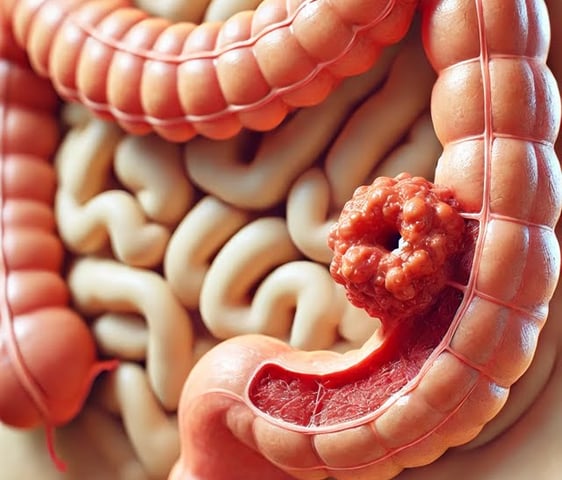

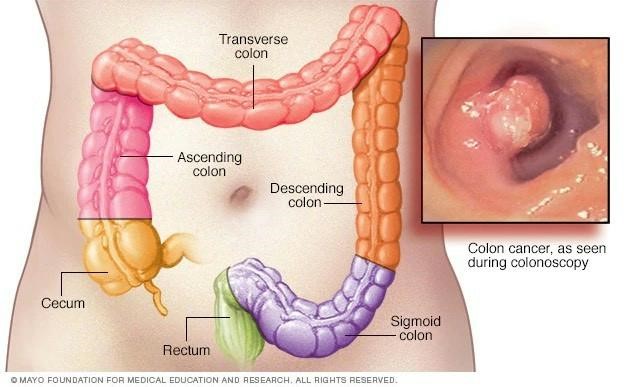

What is a colonoscopy?
The colon is part of the digestive system.
The colon is a major organ essential for waste removal in the body. It removes water from stool, which makes your stool solid. If the colon is not working properly, the body can’t absorb essential nutrients or rid itself of waste.
Colon Cancer ... is a growth of cells that begins in a part of the large intestine called the colon. The colon is the first and longest part of the large intestine. The large intestine is the last part of the digestive system.
The digestive system breaks down food for the body to use.
Colon cancer typically affects older adults. Over the past 10 years there has been a significant increase of Colorectal Cancer in individuals under the age of 45 (Early Onset Colorectal Cancer). This is no longer a disease of the elderly. It usually begins as small clumps of cells called polyps that form inside the colon. Polyps generally aren't cancerous, but some can turn into colon cancer over time.
Polyps often don't cause symptoms. For this reason, doctors recommend regular screening tests to look for polyps in the colon. A colonoscopy is the only tool currently that can prevent a person from contracting Colorectal Cancer; by detecting polyps and simultaneously removing them before they become cancerous.
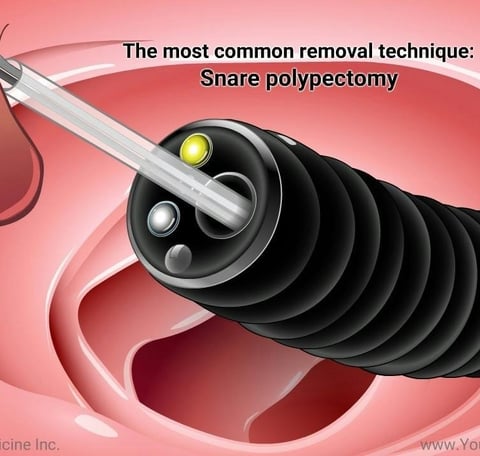

Colonoscopy vs Stool Test?
The DNA stool test is less sensitive than colonoscopy at detecting precancerous polyps. If abnormalities are found, additional tests might be needed. The tests can suggest an abnormality when none is present (false-positive result).
Stool-based tests only detect cancer after it's already present in the colon or rectum. In this case it is already too late in colon cancer prevention
Currently, stool tests cannot detect polyps, if doctors don’t remove the polyp’s they almost always turn into cancer allowing the disease to progress further before detection. That's why gastroenterologists consider a colonoscopy the gold standard for colon cancer prevention and early detection.
Colonoscopy is the only way to prevent colon cancer.
A colonoscopy is the only tool currently that can prevent a person from contracting Colorectal Cancer. Because it detects a polyp before it becomes cancerous and simultaneously removing it.
During a colonoscopy, the patient will lie on their side or back and receive sedation to make them comfortable. The doctor will insert the colonoscope into the rectum and gently guide it through the colon. The colonoscope has a small camera and light that allow the doctor to view the lining of the colon. If any polyps or other abnormalities are found, the doctor may remove them or take a biopsy for further examination.
